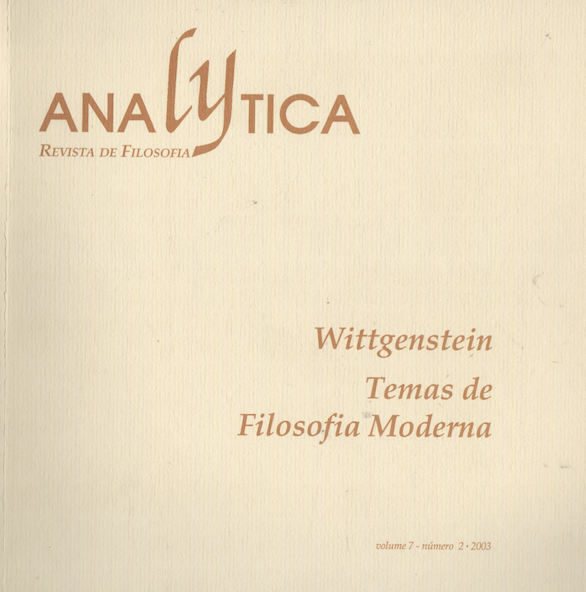Criador perfeito e criaturas que erram
Resumo
Na Quarta Meditação, ao tratar do problema do erro, Descartes considera duas questões distintas: por um lado, a questão epistêmica propriamente dita acerca de como é possível o erro, isto é, acerca de qual seria o aspecto da imperfeição humana que operacionaliza o erro e, por outro lado, a questão metafísica acerca de como é possível compatibilizar a existência de criaturas que erram com a existência de um criador perfeito, isto é, acerca de como é possível que a criatura se engane, visto ter sido criada por um ser perfeito, fonte de todas as coisas e de toda verdade. Neste artigo, farei um exame dessa Quarta Meditação visando, sobretudo, a resposta cartesiana à questão metafísica. Minha hipótese interpretativa é a de que, para compatibilizar um criador perfeito com criaturas que erram, Descartes lança mão não de uma teoria da liberdade (como tradicionalmente se afirma), mas sim do princípio da diversidade.
Abstract
On the Fourth Meditation, while dealing with the problem of error, Descartes considers two distinct questions: on one hand, the epistemic question of how is error possible, that is, the question of what would be the feature of human imperfection that leads to error and, on the other hand, the metaphysical question of how the existence of a perfect creator is compatible with the existence of creatures that make mistakes, that is, the question of how is it possible that the creature make mistakes if it is created by a perfect being which is the cause of every thing and every truth. In this article I will analyze Descartes´s Fourth Meditation aiming, above all, the Cartesian answer to the metaphysical question. My interpretative hypothesis is that in order to render the existence of a perfect creator compatible with the existence of creatures that make mistakes Descartes does not appeal to a theory of freedom (as it is traditionally claimed) but, rather, appeals to the principle of diversity.
Downloads
Publicado
Edição
Seção
Licença
Os autores que publicam nesta revista concordam com os seguintes termos:
- Os autores mantêm os direitos autorais e concedem à revista o direito de primeira publicação, com o trabalho simultaneamente licenciado sob a Licença Creative Commons Atribuição-SemDerivações 4.0 Internacional (CC BY-ND 4.0), que permite a redistribuição, comercial ou não comercial, desde que a obra original não seja modificada e que seja atribuído o crédito ao autor.
- Os autores têm autorização para assumir contratos adicionais separadamente para distribuição não-exclusiva da versão do trabalho publicada nesta revista (ex.: publicar em repositório institucional ou como capítulo de livro), com reconhecimento de autoria e publicação inicial nesta revista.
- Os autores têm permissão e são estimulados a publicar e distribuir seu trabalho online (ex.: em repositórios institucionais ou na sua página pessoal) a qualquer ponto antes ou durante o processo editorial, já que isso pode gerar alterações produtivas, bem como aumentar o impacto e a citação do trabalho publicado (Veja O Efeito do Acesso Livre).


